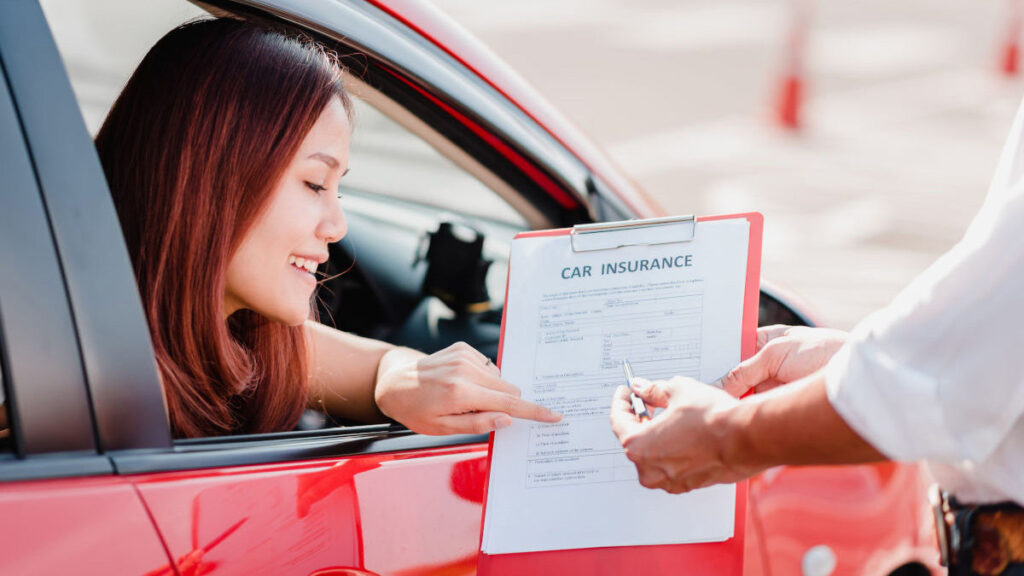
Driving in Dubai is an enjoyable experience thanks to well-maintained roads, clear signage, and modern infrastructure. However, just like in any other bustling city, accidents can happen, vehicles can be damaged, or worse, stolen. That’s where rental insurance steps in. Unfortunately, many renters skip reading the fine print, resulting in confusion or disputes later. This comprehensive guide will break down everything you need to know about car rental insurance in Dubai, the types of coverage available, and how to choose the right protection for your travel needs.
When planning to rent a Car in Dubai, there’s more to consider than just picking the perfect vehicle and deciding on your travel route. One of the most critical aspects of any car rental agreement is insurance. Whether you’re visiting Dubai for business, leisure, or a long-term stay, understanding your car rental insurance coverage is essential to avoid unexpected expenses and ensure peace of mind during your journey.
Why Insurance Is Crucial When Renting a Car
Driving a rental vehicle without proper insurance is not only risky, but in many cases, it’s illegal. Rental insurance serves as a financial safety net in case of accidents, damage, theft, or liability claims. If you decline insurance or don’t fully understand your policy, you could end up paying out-of-pocket for repairs, replacement costs, or even legal fees.
When you rent a car from a reputable agency in Dubai, basic insurance is typically included in your rental cost. However, the coverage can vary significantly, and it’s important to know what’s included—and what’s not—before signing the contract.
Types of Car Rental Insurance in Dubai
Understanding the different types of insurance available will help you make a well-informed decision:
1. Collision Damage Waiver (CDW)
This is the most common insurance offered by car rental companies. A CDW limits your financial liability if the rental car is damaged in an accident. However, it often doesn’t cover damage to tires, windshields, or the undercarriage unless stated otherwise. It also doesn’t mean you’re fully exempt from payment—you may still be responsible for an excess or deductible amount.
2. Super Collision Damage Waiver (SCDW)
This is an enhanced version of the CDW that typically reduces your deductible to zero or a nominal amount. While more expensive, it offers greater peace of mind and is worth considering for high-value rentals or longer journeys.
3. Theft Protection (TP)
This covers you if the rental vehicle is stolen. Again, it typically includes an excess, meaning you’ll pay a portion of the cost even with coverage. Be sure to understand what conditions apply—such as keeping the vehicle locked and keys secure.
4. Third-Party Liability Insurance (TPL)
TPL is mandatory in the UAE and covers damage or injury to another driver, their vehicle, or property. All rental cars in Dubai must have this basic liability insurance by law. However, the coverage amount might be minimal, so if you’re concerned about lawsuits or high-cost damages, you might want to supplement it.
5. Personal Accident Insurance (PAI)
This offers coverage for medical expenses and accidental death benefits for the driver and passengers. If your personal travel insurance already includes similar coverage, this might be redundant—but if not, it’s worth adding.
6. Roadside Assistance
While not strictly “insurance,” roadside assistance services can be added to your policy and cover you in case of flat tires, battery issues, or breakdowns. Some rental companies in Dubai include this by default, while others offer it as an extra.
What’s Not Typically Covered
Even with insurance in place, there are certain exclusions and conditions that renters should be aware of:
- Driving under the influence of alcohol or drugs
- Unauthorized drivers (only listed drivers are covered)
- Off-road driving unless explicitly allowed
- Use of incorrect fuel
- Damage due to negligence, such as reckless driving
Failing to follow rental conditions may void your insurance, leaving you fully liable for all damages or losses.
Credit Card Insurance – Does It Apply?
Many international travelers wonder if their credit card insurance can be used instead of purchasing coverage from the rental agency. Some major credit cards do offer rental car coverage as a perk, but it often comes with limitations.
Before relying solely on your credit card insurance, confirm:
- Whether coverage applies in the UAE
- What types of coverage are included (collision, theft, liability)
- What documentation you need to provide in case of a claim
Even if your card offers coverage, the rental company may still place a hold on your credit card for the duration of the rental as security.
Tips for Choosing the Right Insurance Coverage
Now that you know the options, here’s how to choose the most appropriate insurance for your rental situation:
1. Assess Your Risk Level
If you’re driving short distances in the city, basic insurance might suffice. But if you’re planning long drives to mountainous regions or exploring off-the-beaten-path areas, opt for higher coverage and roadside assistance.
2. Check Your Existing Coverage
Review your travel insurance, auto insurance (if you’re a resident), and credit card benefits. This can help you avoid paying twice for the same protection.
3. Compare Offers from Different Rental Companies
Insurance rates and terms vary. Don’t just look at the base rental price; include the cost of insurance add-ons to understand the full expense.
4. Ask Questions
Before signing your rental contract, ask the rental agent to explain the policy clearly. Inquire about deductibles, excluded items, and procedures in case of an accident.
5. Get It in Writing
Ensure all agreed terms are written into your rental agreement, including any promotional offers or waivers.
What to Do in Case of an Accident or Theft
Even with the best planning, things can go wrong. If you get into an accident or your rental car is stolen, follow these steps:
- Ensure safety – Move to a safe location if needed and check for injuries.
- Call the police – Always report accidents or thefts to Dubai Police by dialing 999. An official police report is required for any insurance claim.
- Inform the rental company – Contact your rental provider as soon as possible.
- Document the incident – Take photos of the damage, surroundings, and collect witness information.
- Submit necessary documents – Provide your rental agency with the police report, photos, and any required forms.
The insurance process in Dubai is generally straightforward, but delays can happen if proper documentation isn’t submitted.
Rent a Car in Dubai with Confidence
Understanding car rental insurance is the first step to a smooth and stress-free journey. When you Rent a Car in Dubai, make sure you’re not only selecting a vehicle that suits your needs but also protecting yourself against potential financial risks. With the right insurance coverage in place, you’ll have the freedom to enjoy Dubai’s scenic drives, modern roads, and iconic attractions with total peace of mind.
So, before you take the keys and start your Dubai adventure, take a moment to review your insurance options. It might seem like a small detail now, but it can make a big difference in how your trip turns out.



